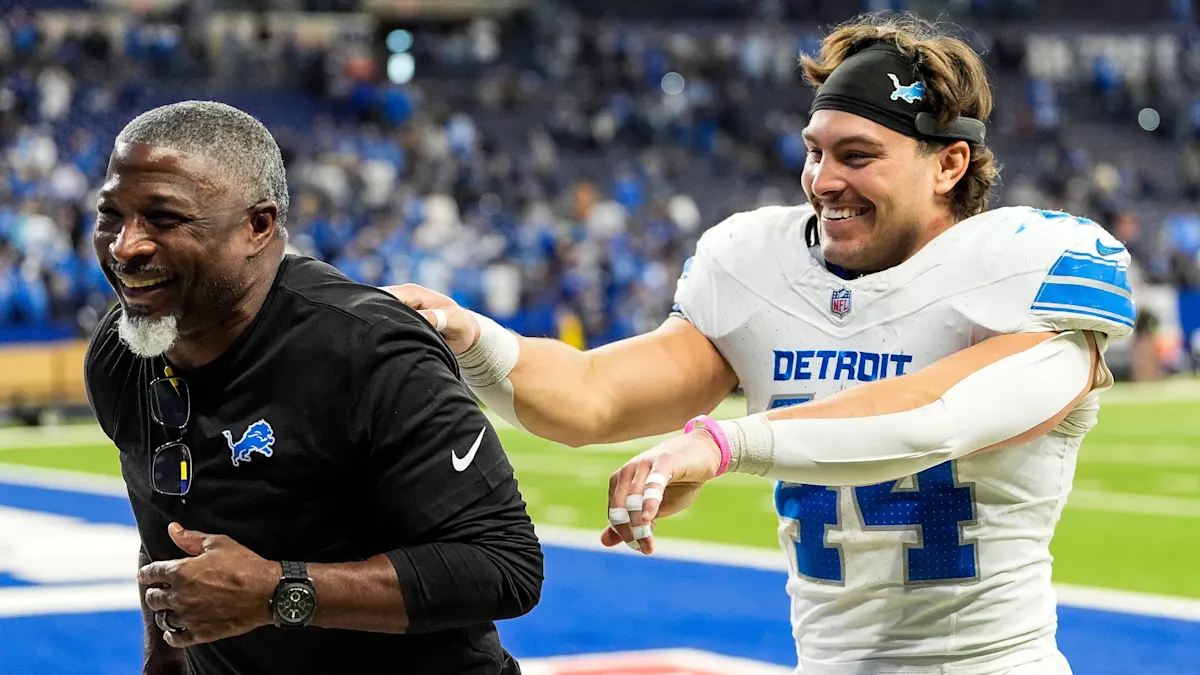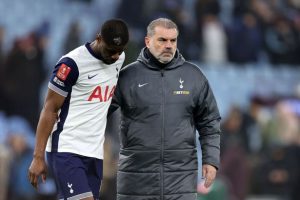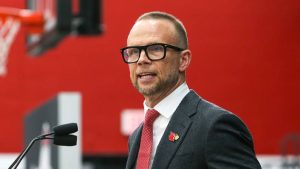
It seems like you’re referring to a recent event involving a star player from the Detroit Lions choosing not to play. While I don’t have access to the specific details of that story at the moment, I can give you a general framework of why a player might decide to sit out and the impact of such a decision.
In the high-stakes world of professional football, players are often seen as invincible figures, tirelessly pushing their limits to give their all on the field. However, behind the helmet and pads, there are human beings who, just like anyone else, face personal struggles, mental health challenges, or even physical injuries that may lead them to make the difficult choice to step away from the game. When a star player from the Detroit Lions decides not to play, it can be a heartbreaking moment for both the team and its devoted fans.
The Detroit Lions, a team with a passionate following, have had their share of ups and downs over the years. They have also had some incredibly talented players who have become the heart and soul of the franchise. The decision of one of their star players to not take the field — whether it’s for health, personal reasons, or a strategic choice — sends shockwaves through the organization. It leaves fans wondering why their hero has chosen to step back at such a crucial moment.
If the player is choosing to sit out due to physical injury, it’s often a tough call for both the player and the coaching staff. Injuries, particularly in a violent sport like football, can be career-altering. The decision to protect oneself from further damage is not only about the player’s well-being but also about the long-term health of their career. Coaches, staff, and medical teams are often forced to make quick decisions to avoid exacerbating an injury, and sometimes those choices mean a star player has to sit out games that are critical for the team.
On the other hand, mental health has increasingly become a central conversation in sports. Players may choose to take time off to recover emotionally, mentally, and psychologically. In recent years, many athletes have been more open about the struggles they face off the field. For a star player to make the brave decision to prioritize their mental health rather than push through for the sake of the team can be a testament to their maturity and self-awareness. It also sends an important message to fans and other players that taking care of oneself is just as vital as playing the game.
The decision to sit out, no matter the reason, also impacts the team. The Lions rely on their star players to lead and set an example, both on and off the field. A player sitting out leaves a gap, one that may be felt in the locker room and on the field. While the team may rally together to fill that void, there’s no denying that the loss of a key player can make a difference in the outcome of a game. The emotional toll on teammates is also significant. They may feel the absence of their friend, their motivator, and their leader.
For fans, the decision can be equally tough. Sports fans are often deeply invested in the success of their team, and the emotional highs and lows of the game are intertwined with their own lives. To see a star player sit out for any reason is a moment of sadness, as it can feel like the team is losing a part of its spirit. However, fans should remember that these athletes, despite their incredible abilities, are still human beings who deserve empathy, respect, and support when they need it most.
In the end, while the decision to sit out is a difficult one for everyone involved, it is often the right one in the long run. Health — whether physical or mental — should always come first. For the Detroit Lions and their fans, it’s a reminder that the game, while important, is just one part of the bigger picture.







